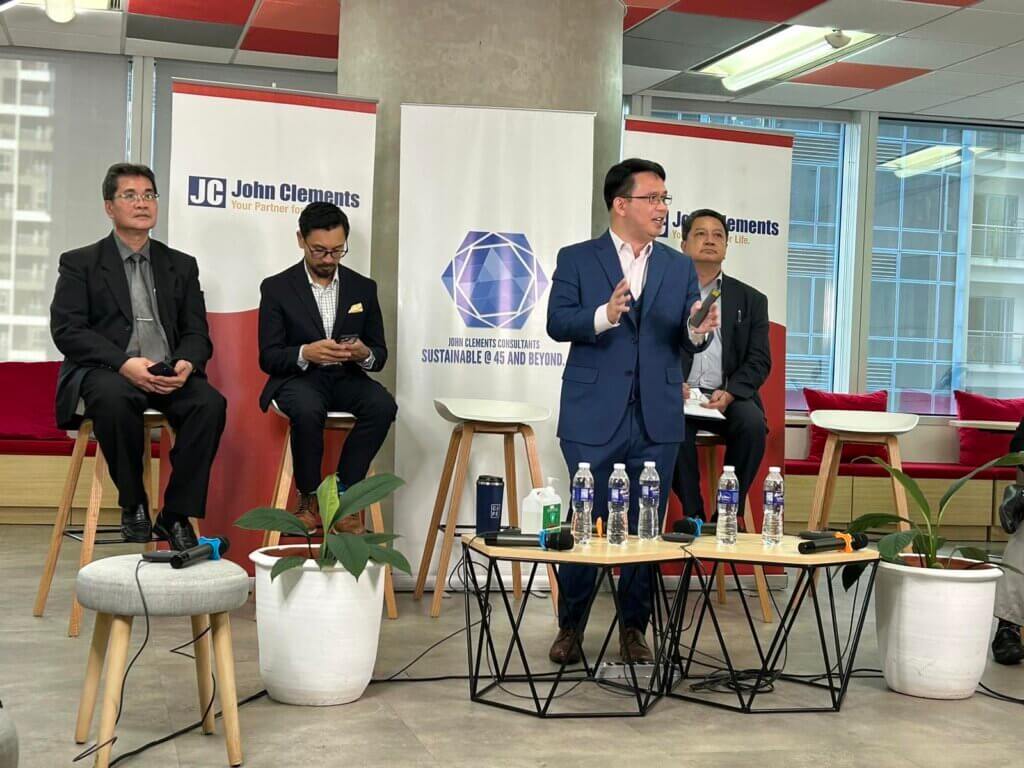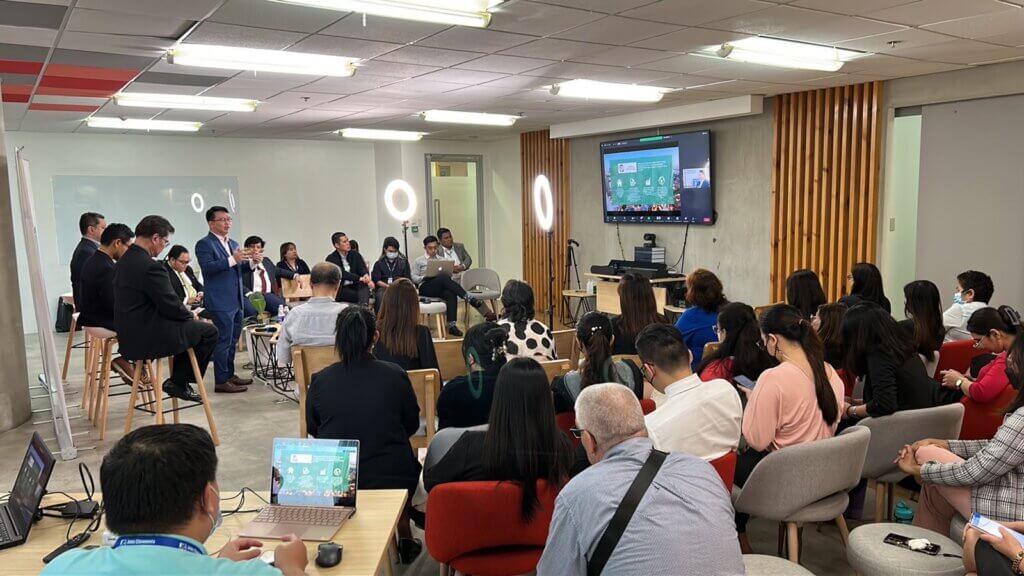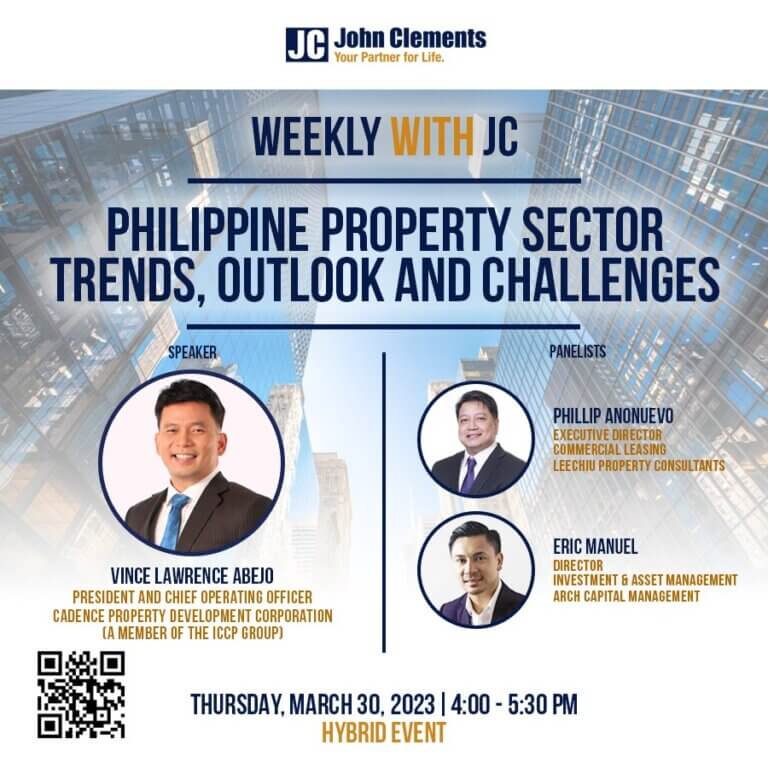In the latest installment of Weekly with John Clements, we were joined by Vince Abejo, President and COO of Cadence Property Development Corporation. Along with Vince, Phillip Anonuevo, Executive Director of Leechiu Property Consultants, and Eric Manuel, Director, Investment and Asset Management at Arch Capital Management, weighed in on the topic of the Philippine property sector and its trends, outlook, and challenges. The session was hosted by our SVP and MD, Mario Biscocho, and was moderated by Carlo Lao, our Managing Consultant.

Over the last year, the Philippine economy did not see its brightest days. Due to the war in Ukraine, China closing itself off, and plenty of external factors, the economy suffered and saw a rise in inflation rates. Various events around the world contributed to the rising prices of essential goods which made it difficult for many to cope, and the Philippine property sector was no stranger to the worsening economy. Construction materials and other goods involved in infrastructures also saw an increase, which in turn affected the prices of properties.
Despite the 6.5 million housing backlog that the country faced due to the cancellation of construction during the height of COVID-19, things are still looking up for the sector. With a 7.6% GDP growth in 2022, which was the fastest in the last four decades, the economy is projected to continue growing and recovering in 2023. As the country continues to recover, the property sector is also slowly regaining its position from the drought it experienced during the pandemic; in 2022, companies in the IT-BPM industry implemented the return-to-office of their employees which has supported the sector in its path to regain economic health. In addition, the return of tourism has also prompted investors and is now seen as a driver which will boost and keep the sector afloat in the coming years.

Since the Philippine property sector is on its way to recovery, many are wondering how they can adapt and take advantage of the current situation. Below are the points raised during the discussion, pointing out trends and possible opportunities that can be taken advantage of.
- “Study people to study real estate.” According to panelist Eric Manuel, in order to take advantage of real estate, one must look at how people are behaving. As an example, millennials and those from Gen Z prefer to have a hybrid work set-up, lessening the need for office spaces. In turn, with society shifting to digital set-ups, spaces for data centers can be made as they will be a necessity in the future. There is a rise in the creation of data centers which presents an opportunity in the space of real estate.
- Decentralize Metro Manila and expand to other regions in Luzon. Panelist Phillip Anonuevo mentioned the struggle of NCR residents due to the amount of people living in such a small area. He stated that despite the struggle people face when commuting, people still stay in Metro Manila due to the lack of top-class facilities outside the region. Putting up world-class schools, hospitals, and making communities feel livable can convince more people to move out of NCR. Recreating the feeling of their stay in Metro Manila can bring more residents to stay elsewhere which can decongest the region.
- Lastly, disrupt the market and innovate. Main speaker Vince Abejo reiterated that in order to take advantage of the Philippine property sector’s rise, there must be disruption. Personalization is one major want that consumers have recently shown; being able to customize and make their spaces their own is a demand in the industry which can be acted upon. For example, Filipinos have been more sophisticated in their lifestyle due to the pandemic. They want to be able to separate their work from their homes since they realized that working in their own living spaces could be quite chaotic. They are looking for quiet spaces they can work in, so they do not necessarily have to work in their company’s offices.
- Being able to use data analytics as well for customer experience can give an edge over competitors as it assists in innovation and delivers the best possible product to consumers.
- Furthermore, various training courses can assist in providing employees a better understanding of the space which can equip them with the right tools to be able to sell efficiently. Having a deeper knowledge of the industry and its consumers’ needs can assist in innovation and bring value to the table.

Overall, the future is looking bright for the industry this 2023. On its path to recovery, the main factor to watch out for is the inflation rate. Despite the growing GDP and economy, plenty of external issues still affect the Philippines which cannot be helped. However, by staying vigilant and by closely monitoring it, one can react accordingly to any sudden fluctuations or changes. The property sector is expected to bounce back and even open new opportunities that can benefit the nation and especially its citizens.
John Clements will be hosting another Weekly with JC event entitled “Watt’s Next? The Future of Renewable Energy” on April 13, 2023, which you can register for in-person or virtual attendance here.





